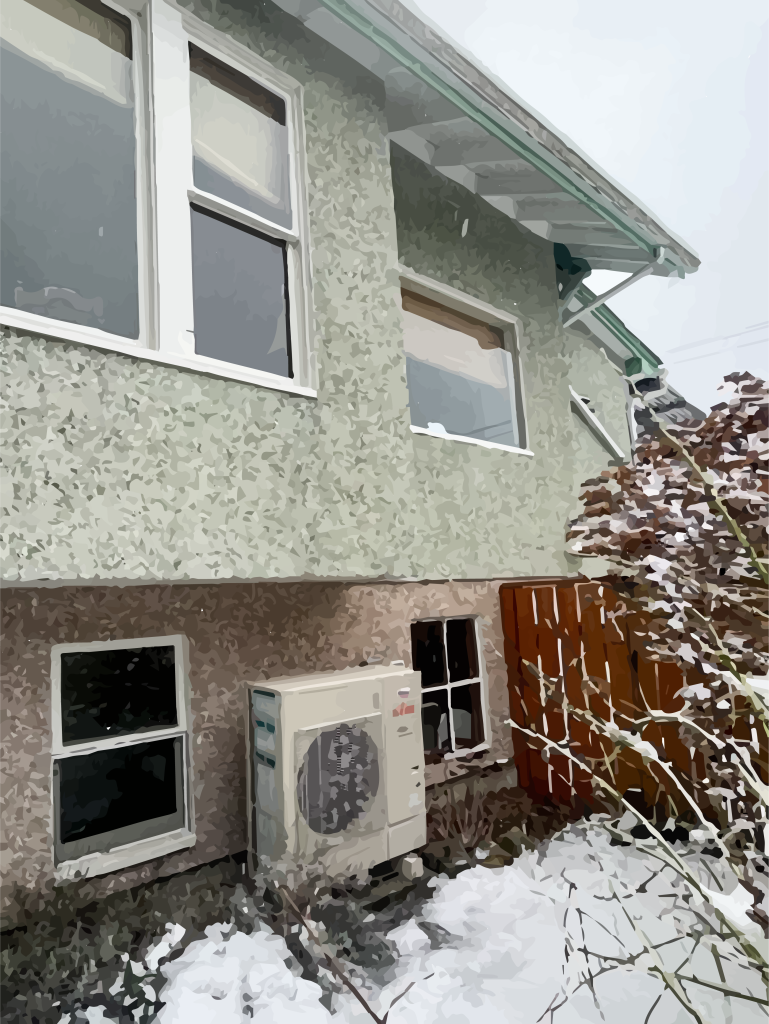In the four years I’ve been with Ecotrust Canada as our Energy team’s policy advisor, it’s clear that the stakes of our work have never been higher. We are nearly out of time to slow the collapse of our climate and ecosystems — and short-sighted politics and a mounting affordability crisis are hamstringing our progress. Still, I expect that 2024 will be a pivotal year in Canada as we fight to ensure that everyone has a safe and affordable place to call home in these challenging times.
Foremost in my mind is the need for British Columbia to catch up to the Eastern provinces that are offering free heat pumps to lower-income residents. Interest in this money-saving and life-saving technology has never been higher, but in our current affordability crisis, many households simply can’t make the switch. For others, including higher-income homeowners and builders of new homes, B.C. needs to advance regulations that require the use of heat pumps in addition to providing incentives.
Energy bills are rising at a time when more people need energy to stay warm in the winter and cool in the summer. It comes as no surprise that individuals with lower incomes, the elderly, and those who are physically vulnerable are experiencing the worst impacts. Fortunately, research has shown that heating (and cooling) your home with a heat pump is an affordable solution.
Electric heat pumps are much cheaper to operate than oil or baseboard electric heaters, and (yes!) they even cost less to run than a gas furnace across nearly all of Canada. Products are now available that perform excellently in cold climates — even when the temperature dips to -30 °C.
Recognizing the benefits, Ontario is the most recent province to provide a free heat pump to lower-income residents, joining Nova Scotia, New Brunswick, and P.E.I., provinces with similar programs. Our team will continue to advocate for our partner communities this year, calling for B.C. to follow suit and offer the same level of support through its Income-Qualified Program.
Meanwhile, B.C. is designing policies and regulations to ensure all buildings are comfortable and safe refuges from a future that will most certainly be hotter, and regularly impacted by air quality challenges related to wildfire smoke. The B.C. government has set a clear direction toward making net-zero emission buildings after 2030. Major progress will be made toward this goal in new construction as B.C. municipalities adopt the Zero Carbon Step Code, and with existing buildings through the province’s Highest Efficiency Equipment Standard.
This year will see BC Hydro redesign residential rates for the first time since 2015. The two-tiered electricity rate that most customers in B.C. pay no longer serves the public interest as more customers switch to electric vehicles and heat pumps. We will be involved with this important proceeding before the BC Utilities Commission to ensure the interests of our community partners are represented. Rural, remote, and Indigenous communities are facing some of the highest utility bills in the province and deserve fair and affordable rates for energy.
Contributing to the rising momentum toward energy justice and equitable decarbonization in Canada, we will share our research and perspectives at upcoming conferences and gatherings. One of our first opportunities is at the Retrofit Canada Conference from June 12-13 in Vancouver, where we are presenting our latest recommendations on centring equity in policy and program design, and sharing lessons from our on-the-ground projects with community partners.
Throughout 2024, our policy team will work hard alongside our community partners, allied organizations, and governments to realize our vision of energy security for all — a Canada where nobody has to choose between heating their home and feeding their family. As the financial and health benefits of climate-resilient, all-electric buildings become ever clearer, we will be working hard to encourage this common-sense transition.
For further reading “Comment to the Province on the proposed regulatory approach for the Highest Efficiency Equipment Standards.”
[Published January 25, 2024]


